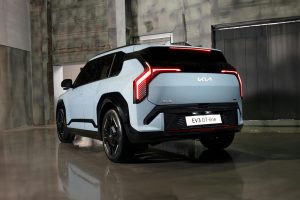Insurance Trends for New Vehicle Technologies
As technology continues to advance, the automotive industry is constantly introducing new and innovative features in vehicles. From self-driving cars to connected vehicles, these advancements are revolutionizing the way we drive and interact with our vehicles. However, with these new technologies come new risks and challenges for insurance companies. In this article, we will explore the latest insurance trends for new vehicle technologies and what they mean for both insurers and consumers.
The Rise of Self-Driving Cars
Self-driving cars, also known as autonomous vehicles, have been making headlines in recent years. With companies like Tesla, Google, and Uber investing heavily in this technology, it’s no surprise that self-driving cars are becoming more common on the roads. However, with this rise in self-driving cars, there are several insurance implications to consider.
Shifting Liability
One of the biggest challenges with self-driving cars is determining liability in the event of an accident. Traditional insurance policies assume the driver is at fault in most cases, but with self-driving cars, the responsibility shifts to the vehicle and its technology. This raises questions about who will be responsible for accidents – the manufacturer, the software developer, or the vehicle owner?
Higher Insurance Rates
Another trend with self-driving cars is the potential for higher insurance rates. While these vehicles are equipped with advanced technology that can potentially reduce accidents, they also come with a hefty price tag. This means that insurers may need to increase premiums to cover the cost of repairing or replacing these vehicles in the event of an accident.
Insurance for Connected Vehicles
Connected vehicles, also known as smart cars, are equipped with internet connectivity and various sensors that enable them to communicate with other vehicles and infrastructure. This technology has the potential to greatly improve road safety and reduce accidents, but it also raises some insurance concerns.
Data Privacy and Security
One of the main concerns with connected vehicles is the privacy and security of the data collected. Insurance companies may have access to a wealth of information about a driver’s behavior, habits, and location, raising concerns about how this data will be used and protected. This can also lead to potential cyber risks, as hackers may target these vehicles and their sensitive data.
Risk Assessment and Personalized Insurance
The use of data from connected vehicles can also have a positive impact on insurance. With the use of sensors and data, insurers can better assess a driver’s risk and offer personalized insurance rates. This can provide more accurate pricing for drivers and potentially lower insurance rates for those who exhibit safe driving habits.
Insurance for Electric Vehicles
Electric vehicles (EVs) have become increasingly popular in recent years, with car manufacturers focusing on producing more eco-friendly and energy-efficient vehicles. As the number of EVs on the road continues to grow, insurance companies are also adapting to this trend.
Higher Repair Costs
One of the main challenges with insuring electric vehicles is the higher cost of repairs. Unlike traditional gasoline-powered cars, EVs have more complex and expensive components, such as batteries, which can be costly to replace in the event of an accident. This can result in higher insurance rates for EV owners.
Discounts and Incentives
On the flip side, many insurance companies are offering discounts and incentives for EV owners. With the focus on reducing carbon emissions, some insurers may offer lower rates to encourage more drivers to switch to electric vehicles. As the technology continues to advance and more EVs become available, we can expect to see more insurance companies offering similar incentives.
In Summary
As new vehicle technologies continue to emerge, insurance companies are facing new challenges and opportunities. It is essential for insurers to keep up with these trends and adapt their policies and pricing accordingly. With the potential for safer roads and more personalized insurance, these advancements in vehicle technology can have a positive impact on the insurance industry and consumers alike.
In conclusion, the rise of self-driving cars, connected vehicles, and electric vehicles are all contributing to the evolution of the insurance industry. As these technologies become more common, it is crucial for insurers to stay informed and adapt their policies to stay ahead of the curve.









